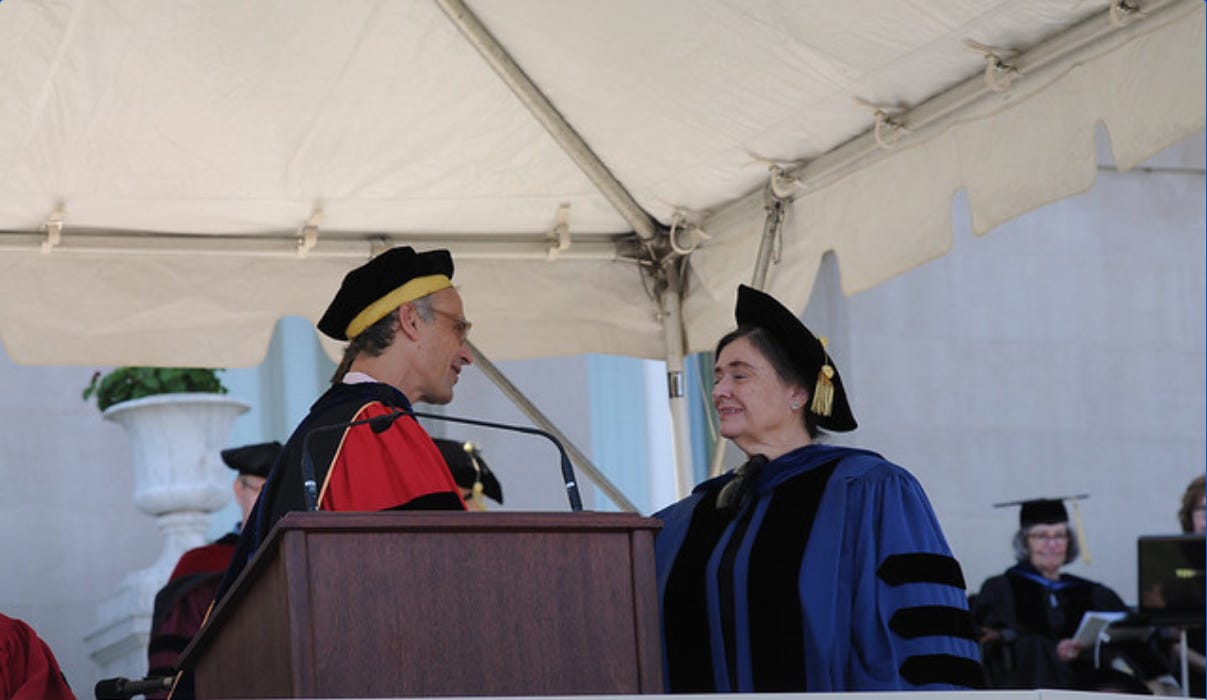The Art of Losing
The promise that we will all see each other again after the pandemic cannot always be fulfilled
This is normally a paid subscriber-only day, but I am sending it to all subscribers because I am memorializing an old friend. Please feel free to:
Ann Wightman (right) at her final Wesleyan commencement, May 2015; President Michael Roth is at right (Photo credit: Wesleyan University/Flickr)
Keep reading with a 7-day free trial
Subscribe to Political Junkie to keep reading this post and get 7 days of free access to the full post archives.




